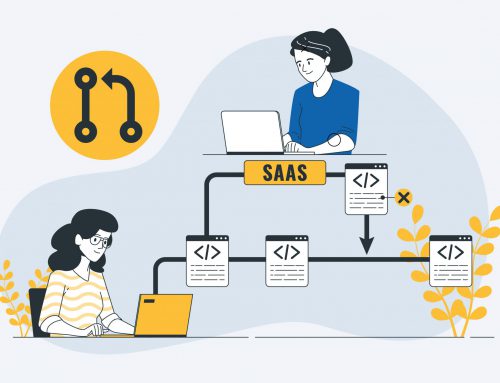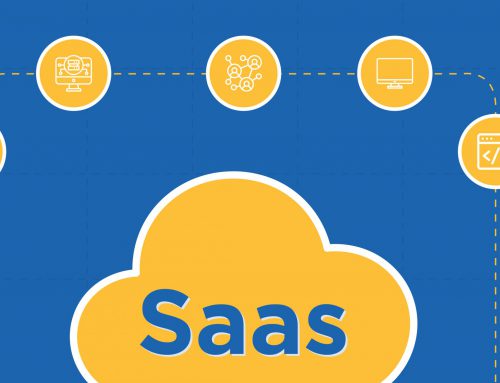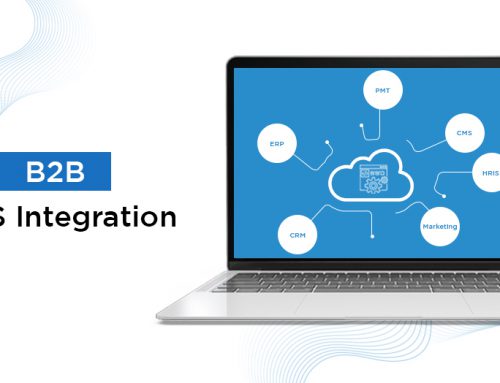Table of Contents
In modern business, streamlined operations are crucial for success. Before ERP software, managing various functions with multiple systems led to inefficiencies and errors. ERP centralizes operations onto a unified platform, eliminating chaos and fostering seamless coordination. It is now available for businesses of all sizes and is expected to reach $103.95 billion by 2029. ERP has a transformative impact on operational efficiency and productivity across industries.
In this blog post, we will explore the basics and advanced aspects of ERP software, clarifying its complexities to illustrate its significance in modern business operations. But first, let’s establish a clear understanding of what exactly an ERP system entails.
What Is ERP Software?
Suppose you are sick of juggling multiple software while managing and streamlining your business operations to make it efficient. In that case, Enterprise Resource Planning (ERP) software development is the solution for you.
ERP is a software used by organizations to automate their routine and repetitive business operations helping the management make informed decisions utilizing real-time data and information. ERP integrates all your business data and processes from various departments into one centralized database automating processes to maximize operational efficiency and profitability.
ERP development makes managing massive databases easier for small to large organizations by handing resources more efficiently integrating machine learning and artificial intelligence.
The Various Modules of ERP Systems
For businesses eyeing enhancement of business operational efficiency, reduced costs, enhanced collaboration, and improved customer satisfaction, an ERP system is the need of the hour. ERP software can be customized as per the specific needs of the organization including a wide variety of features. It aims to create a solution capable of managing all sides of a business with the different types of ERP modules listed below:
- Finance
- Manufacturing
- Supply Chain Management
- Marketing Automation
- Human Resource Management (HRM)
- Customer Relationship Management (CRM)
- Project Service Resource Management
- eCommerce
- Sales
Impact of ERP Software Development on Business Operations
Automation
With ERP software development businesses can easily automate the multiple processes within existing systems, databases, infrastructure networks, and applications. There is no need for time-consuming and expensive extended changes as well as modifications.
The seamless integration of ERP software within the current system is possible without hindering ongoing workflow and business operations. The automated process helps minimize human errors and time consumption on various tasks resulting in enhanced productivity and increased accuracy.
Data Security

For businesses data is the key factor that affects decision making, marketing strategies, and overall planning. Over time with easy internet accessibility and digitization, data has become a valuable asset for businesses as it facilitates data-driven decision-making and finding hidden opportunities.
ERP software development plays an important role in securing the data asset. Unifying data in a single database rather than spreading it across various systems enhances overall data security. In cloud-based ERP systems, data is generally distributed across multiple remote servers. This helps with redundancies and reduces the risk of a single point of failure adding an extra layer of security especially important when handling sensitive customer data.
Resource Optimization
Deploying an ERP system can transform how resources are managed within businesses by providing valuable insights, greater inventory tracking, procurement processes, and supply chain activities to optimize resource allocation. Custom ERP software development can help reduce carrying costs by eliminating excess inventory and meeting customers’ needs.
ERP software can helps identifying opportunities for bulk purchases eventually optimizing procurement costs and facilitating more effective supplier negotiations. Businesses can have improved bottom-line performance and cost reductions with resource optimization.
Data-driven Insights

ERP software development diverse information from various systems into a centralized single database allowing businesses to have valuable and actionable insights for informed decision-making. Apart from data-driven insights, ERP development facilitates quick decision-making too- how? With real-time data access, user-friendly reporting, and analysis tools businesses can easily identify which workflows are efficient and which are costly enabling faster decision-making.
Data-driven approach forms the basis for strategic planning and rapid adaptation to market changes. ERP software helps with quick and accurate identification of trends, patterns, and development opportunities leveraging single source data accessibility.
Integration and Collaboration

Businesses can greatly benefit from an ERP system designed specifically for their needs. Such a system integrates workflows across departments, enhancing relationships between buyers and suppliers. Custom ERP software can perfectly meet each business’s unique requirements, allowing each department or team to have a tailored system that boosts efficiency.
Software developers can create and customize an ERP system to fit a company’s exact specifications and circumstances, addressing the specific needs, workflow processes, and applications of its various internal divisions and departments.
By unifying all enterprise-related information, custom ERP systems improve collaboration across departments or branches. Additionally, ERP software development reduces communication delays throughout the company, which is especially beneficial for businesses with an affiliate network spanning multiple states or continents.
Exploring the Diversity in ERP Development
Different types of ERP systems can be implemented depending on various aspects of business requirements. ERP software developers and consultants can provide you with proper suggestions for which ERP system is best suitable for your business. Here is the list of different types of ERP systems:
- On-premise ERP
- Cloud-based ERP
- Hybrid ERP
- Open Source ERP
On-premise ERP
On-premise ERP provides total control to businesses as it runs on in-house servers at your own location. Giving you complete oversight over the security of ERP software it offers control of using your own IT infrastructure to connect your people, processes, and systems. On-premise ERP modules are customizable and can be tailored specifically but it requires dedicated staff to maintain its application and servers to keep everything functioning effectively.
Cloud-based ERP
A cloud-based ERP system (also called Software as a Service or SaaS) is a third-party managed system. Users can store information across any device using cloud-based ERP. Cloud-based ERP development is relatively cost-effective requiring minimal expertise for use and delivering impressive performance.
Hybrid ERP
Hybrid cloud ERP is a combination of on-premise ERP and cloud-based ERP offering the technical benefits, features, and performance of both types of ERPs. The users can leverage the benefits of both the system’s expertise without providing access to all of the data while still meeting business requirements.
Open Source ERP
Open-source ERP software generally provides applications without any fees. It charges an annual subscription to access cloud services. Open-source ERP systems can be a pocket-friendly and even accessible choice for some organizations. It is modular and flexible, as users need to pay only for the features and customizations they need.
Which Key Capabilities Are Essential for ERP Software To Deliver Optimal Performance?
Though every business requires different features, tools, and functionalities depending upon their business objectives and industry, here are some essential capabilities that must be there in any ERP system.
- ERP software should offer all possible storage choices, including on-premise servers and hybrid platforms so companies can choose what best meets their business model without incurring restrictions in terms of access, space requirements, data protection, or maintenance expenses.
- ERP development is a modular system that includes various solutions. The ERP system has to be fully integrated for an overall view and coordination to avoid silos and disruption within their operations facilitating seamless migrations.
- ERP systems are considered to be reliable for high-level automation. The ERP software development must automate repetitive tasks to save time, money, and resources with accuracy.
- Mobile compatibility is needed for any digital solution and an ERP system is not out of that league. An ideal ERP software would enable teams to work and access seamlessly to ERP applications from any smartphone, tablet, or laptop device.
- ERP system must provide automated reports to boost productivity as part of its time-efficient workflow process reducing human involvement. ERP software has to have the facility to track material and immaterial data within its system for transparent tracking.
Conclusion
Today’s business environment is filled with challenges, from managing multiple operations and resources to handling data across different systems. However, there is a solution: custom ERP software development. This powerful tool enables businesses to break down departmental barriers and improve efficiency, collaboration, and workflow.
Unlock the power of Software as a Service to provide customized ERP software solutions designed to meet your company’s specific requirements. Our experienced team is prepared to create and implement a complete ERP system that brings together your data, processes, and assets into a cohesive platform. Get in touch with us today to begin the path towards a results-oriented ERP solution tailored specifically for your business.



























